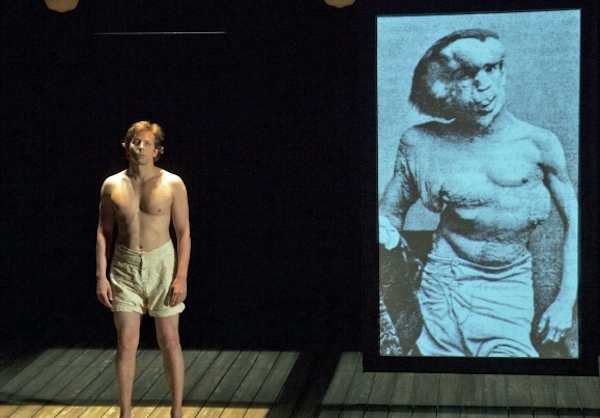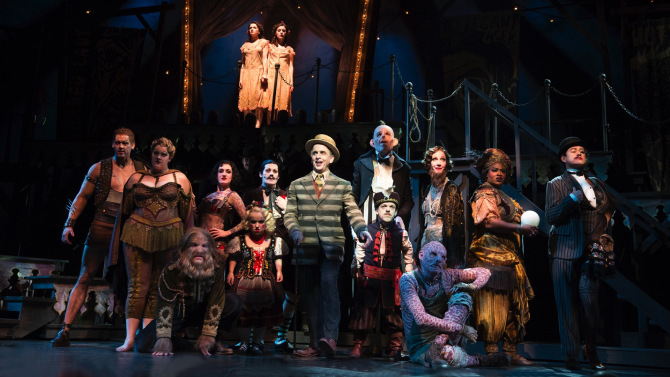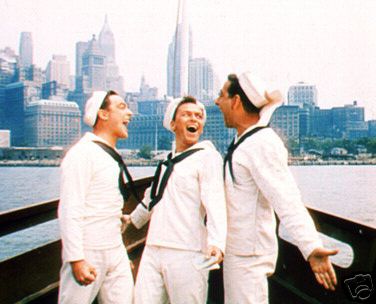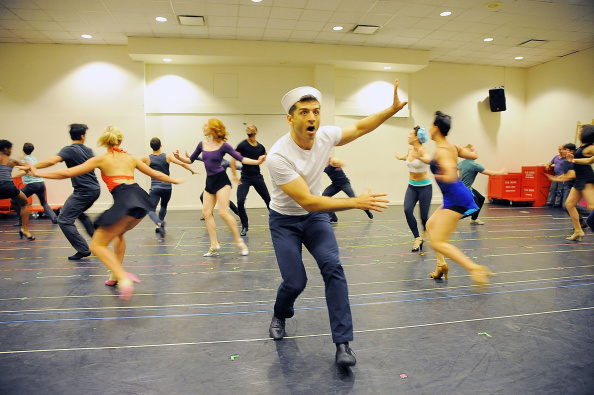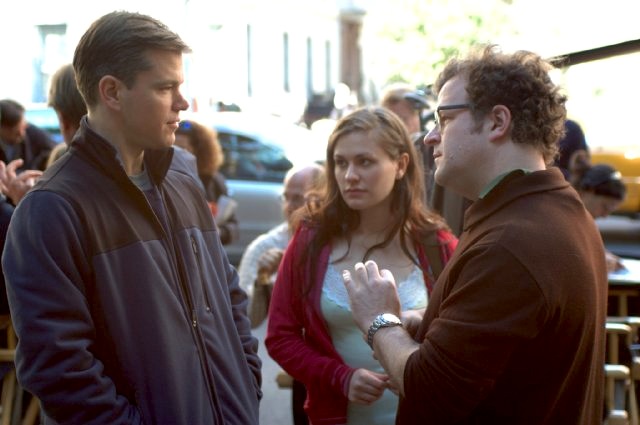Jose here. Earlier this year I reported back from the Kit Kat Club to share my impressions about Michelle Williams’ performance as Sally Bowles in the Roundabout Theatre production of Cabaret. Last night I went back to see what Emma Stone (Spirit-Nominated this morning) brought to the part...

Halfway through the first act of Cabaret, Sally Bowles realizes that life with her naive, new lover Cliff (Bill Heck) might be exactly what she needs. She sits with Cliff on a chaise lounge and for a moment she sees herself living the life of a wife and mother, satisfied with keeping home and raising her child. Suddenly, the Emcee interrupts this precious moment by bringing a microphone, its allure too powerful for Sally to resist, and drawn towards it as if under a spell, she performs “Maybe This Time”.
Onstage, the heartbreaking irony of this moment (Sally selling her soul to showbiz, while fooling herself into thinking she’s doing the opposite) is hard to detect if the actress playing her is too eager, or not eager enough; a delicate balance which I’m thrilled to report was beautifully achieved by Emma Stone.
 Having already proved to be a truly magnetic screen presence, Stone brings her unusual sensuality to Sally Bowles by subverting the quirkiness that makes her so much fun to watch in movies. Gone are the traces of the goofy girl from Easy A, or the naivete of her Gwen Stacy in The Amazing Spider-Man. If anything, she’s taking on the introspective self-destructiveness of her Sam from Birdman, the same volatile qualities that make her appealing and scary. Her Sally is a teenager who has convinced herself she can fool others into thinking she can play with the grown-ups. Her levels of delusion are such that she fails to notice she hasn’t really fooled anyone but herself.
Having already proved to be a truly magnetic screen presence, Stone brings her unusual sensuality to Sally Bowles by subverting the quirkiness that makes her so much fun to watch in movies. Gone are the traces of the goofy girl from Easy A, or the naivete of her Gwen Stacy in The Amazing Spider-Man. If anything, she’s taking on the introspective self-destructiveness of her Sam from Birdman, the same volatile qualities that make her appealing and scary. Her Sally is a teenager who has convinced herself she can fool others into thinking she can play with the grown-ups. Her levels of delusion are such that she fails to notice she hasn’t really fooled anyone but herself.
Stone is also smart enough to know that in the stage version, Sally isn’t the star, she’s part of the ensemble. To a certain degree she's also a memory conveyed by Cliff who “writes” the show as it goes by looking back at his Berlin experiences. Stone’s Sally, while not the star of the show, is so seductive that we miss her whenever she’s not onstage, partly because we want to see her again, and partly because we are afraid of what will happen to her when we’re not looking after her. The audience develops caretaker feelings towards her, combined with sexual desire, making for Stone’s most mature performance to date.
And can she sing you ask? While she is obviously no Liza (then again who is?), Stone successfully delivers her numbers, bringing a raspy, sensual quality to them. (She often sounds like Lindsay Lohan did in her pop star moment!). Stone knows that singing isn’t her (or Sally's) true forte, so she lets this be an essential part of the performance, delivering the last third of the title song completely out of pitch, furiously fighting against the notes coming from the band. If a man can’t restrict her, why does this song think it can?
 Friday, February 13, 2015 at 6:00PM
Friday, February 13, 2015 at 6:00PM 


